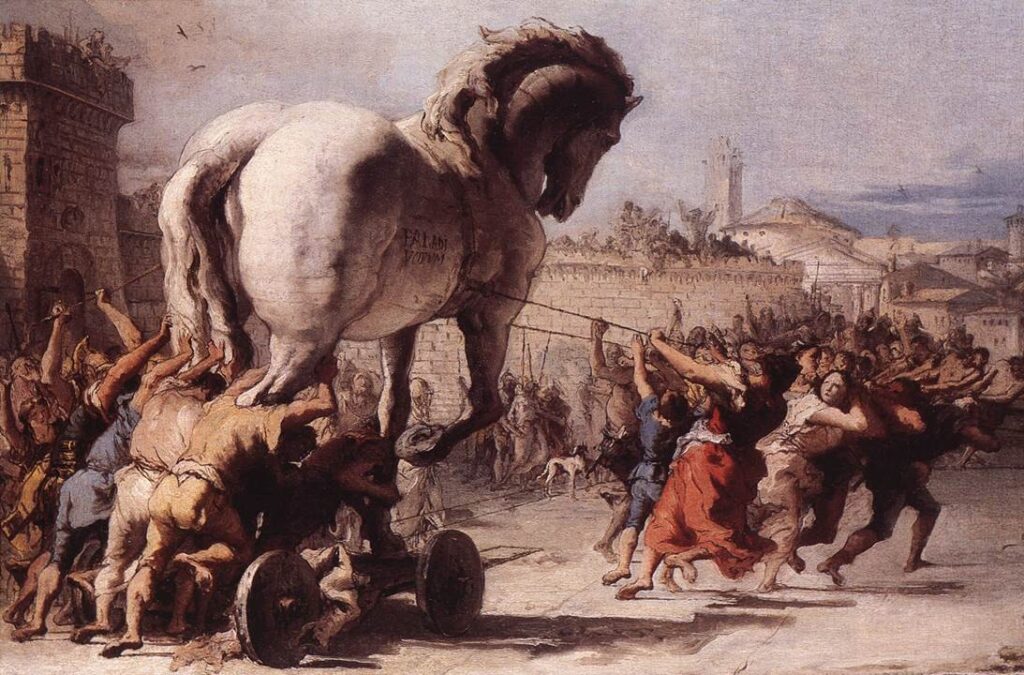Barbara W. Tuchman? Denys Arthur Winstanley? Anonymous?
Question for Quote Investigator: The popular historian Barbara W. Tuchman suggested that it was unfair to “judge men of the past by the ideas of the present”. She credited this interesting stance to an unnamed English historian. Yet, I have been unable to determine the identity of this astute chronicler; there was no footnote. Would you please trace this statement?
Reply from Quote Investigator: Barbara W. Tuchman was quoting the words of Denys Arthur Winstanley of The University of Cambridge as detailed in the 1912 citation presented further below.
Similar thoughts have been expressed on multiple occasions in the past. For example, in 1821 a literary journal printed an article titled “On the Character of Socrates” which included the following passage:1
…we think nothing is more unfair than to judge of the sentiments of one age by the improved moral perceptions of another…
Here are additional selected citations in chronological order.
In 1859 “Titan: A Monthly Magazine” published an article that analyzed contemporary plays in France. The essay included this remark:2
Nothing is more unfair than to judge individuals or nations from our, and not their own point of view. They have a right to protest whenever this is done…
In 1866 a biography titled “The Life and Times of Viscount Palmerston” included a statement about judging historical figures:3
Nothing is more unfair than to judge of a statesman of a past day by the light of the present.
In 1912 the book “Lord Chatham and the Whig Opposition” by Denys Arthur Winstanley was published, and it included a passage that many years later was quoted by Barbara Tuchman:4
…nothing is more unfair than to judge the men of the past by the ideas of the present. Whatever may be said of morality, political wisdom is certainly ambulatory.
In 1984 Barbara Tuchman wrote a book that recounted a series of historical episodes that demonstrated folly. In an introductory section of “The March of Folly: From Troy to Vietnam” she explained her definition of folly and referred to Winstanley’s 1912 remark:5
To qualify as folly for this inquiry, the policy adopted must meet three criteria: it must have been perceived as counter-productive in its own time, not merely by hindsight. This is important, because all policy is determined by the mores of its age. “Nothing is more unfair,” as an English historian has well said, “than to judge men of the past by the ideas of the present. Whatever may be said of morality, political wisdom is certainly ambulatory.”
To avoid judging by present-day values, we must take the opinion of the time and investigate only those episodes whose injury to self-interest was recognized by contemporaries.
In conclusion, Barbara Tuchman was referring D.A. Winstanley who believed that it was unfair to judge historical figures by future standards of behavior and value.
Image Notes: Image of painting “The Procession of the Trojan Horse in Troy”. Artist: Giovanni Domenico Tiepolo. Completion Date: 1773. Source: WikiArt.org. The book “The March of Folly” by Tuchman discussed the legendary Trojan horse tale as an archetypal example of folly on the part of King Priam. The image has been cropped and resized.
Acknowledgement: Great thanks to John Maher whose query led QI to formulate this question and perform this exploration.
Update History: On January 18, 2025 the format of the bibliographical notes was updated.
- 1821, The New Monthly Magazine and Literary Journal, Volume 1, On the Character of Socrates, Start Page 555, Quote Page 566, Henry Colburn and Co., London. (Google Books Full View) link ↩︎
- 1859 January, Titan: A Monthly Magazine, What Helps to Cause the Degeneracy of the Youth of France, (Review: La Jeunesse by M. Emile Augier and Le Fils Naturel by M. A. Dumas (Fils)) Start Page 1, Quote Page 1, Published by James Hogg & Sons, London. (Google Books Full View) link ↩︎
- 1866, The Life and Times of Viscount Palmerston by J. Ewing Ritchie (James Ewing Ritchie), Volume 1, Quote Page 185, The London Printing and Publishing Company, London. (Google Books Full View) link ↩︎
- 1912, Lord Chatham and the Whig Opposition by D. A. Winstanley (Denys Arthur Winstanley) (Fellow and Lecturer of Trinity College, Cambridge), Quote page 129, Cambridge University Press, Cambridge and London. (HathiTrust Full View) link link ↩︎
- 1984, The March of Folly: From Troy to Vietnam by Barbara W. Tuchman, Quote Page 5, Published by Alfred A. Knopf, New York. (Verified with scans) ↩︎
